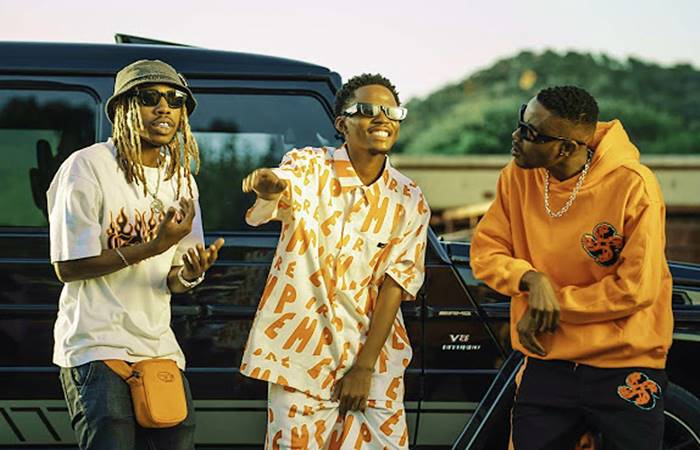
The South African Hip Hop’s Digital Revolution: How Social Media and Streaming Transformed the Genre.
Hip hop, once an underground movement, has transformed into a global cultural phenomenon. The genre’s ascent can be credited not only to its powerful message and vibrant creativity but also to its adaptation to the digital age. Social media and streaming platforms have played pivotal roles in reshaping how hip hop artists create, promote, and distribute their music. This article delves into how hip hop’s digital revolution has been fueled by these platforms, making it accessible to millions worldwide and giving artists unprecedented control over their careers.
The Early Days of Hip Hop and the Pre-Digital Landscape
In the late 1970s and early 1980s, hip hop grew organically from the streets of New York City, relying on grassroots methods to spread. Word-of-mouth, underground mixtapes, and live performances were essential for exposure. Artists like Grandmaster Flash and Run-D.M.C. carved their paths through physical media and local radio. Record labels held considerable control, acting as gatekeepers for who succeeded or remained in the shadows.
RELATED: Cultural Appropriation in Hip Hop: Respecting the Roots in South Africa
Fast forward to the 2000s, and the introduction of the internet started changing the music landscape. Peer-to-peer platforms like Napster shook the traditional model, but it wasn’t until the rise of social media and streaming services that the game changed entirely.
The Rise of Social Media: Breaking Barriers for Hip Hop Artists
Social media has become a powerhouse for modern hip hop. Platforms like Instagram, Twitter, and TikTok provide artists with a direct connection to their fans. This dynamic interaction allows artists to bypass traditional channels like radio or TV, where hip hop was often marginalized in its early years.
- Direct Audience Engagement: Hip hop artists can now share music, announce releases, and engage with their audience in real time. Whether it’s freestyling on Instagram Live, dropping teasers on Twitter, or creating viral challenges on TikTok, artists have developed new ways to cultivate their fan bases.
- Content Creation and Collaboration: The collaborative nature of hip hop thrives on platforms like YouTube and SoundCloud. Independent artists can release music without the backing of a major label, while collaborations between artists from different regions or countries have become more frequent, pushing the genre’s global boundaries.
- Viral Moments and Career Boosts: TikTok has been particularly instrumental in propelling songs to viral status, giving even unknown artists the chance for massive success. Songs like Lil Nas X’s “Old Town Road” went viral on TikTok, skyrocketing him to fame. In the past, such meteoric rises were nearly impossible without a label’s backing.
Streaming Services: A New Era of Music Consumption
Streaming services such as Spotify, Apple Music, and Tidal have transformed the way we consume music, and hip hop has been one of the biggest beneficiaries of this shift. With millions of users around the world, streaming has helped democratize music distribution.
- Global Reach and Accessibility: Streaming platforms have given hip hop artists global reach. In the pre-digital age, an artist from the Bronx might struggle to get their music heard in Los Angeles, let alone in another country. Today, a song released on a platform like Spotify can be streamed in Japan, Brazil, and South Africa simultaneously.
- Analytics and Targeted Marketing: Streaming services also provide detailed analytics that allow artists to better understand their audience. Platforms like Spotify give artists data on who is listening to their music, where they are located, and even what playlists their songs are featured on. This information can help artists create targeted marketing strategies, leading to smarter promotional decisions.
- Revenue and Monetization: While some critics argue that streaming payouts are insufficient, it’s undeniable that streaming platforms offer new revenue streams. Artists can now make money through streams, playlist placements, and even exclusive deals with streaming platforms.
The Independent Artist Movement and Hip Hop’s Evolution
The combination of social media and streaming has empowered a new generation of independent hip hop artists. With the ability to self-produce and distribute music directly to fans, many artists are opting to remain independent rather than sign with major labels. Artists like Chance the Rapper have gained widespread success without the need for traditional record deals, showing that artists can retain creative control and still achieve mainstream recognition.
This digital revolution has also allowed for a greater diversity of voices in hip hop. Independent artists from marginalized communities or underrepresented regions now have the tools to reach global audiences without the backing of a major label. This shift has broadened the genre’s sound, leading to the rise of sub-genres like trap, drill, and lo-fi hip hop, which have gained popularity around the world.
Challenges of the Digital Revolution
While social media and streaming have democratized the music industry, there are still challenges. The oversaturation of content can make it difficult for new artists to stand out. Additionally, the streaming model has raised questions about fair compensation for artists, with many earning only a fraction of what they would have through traditional album sales.
Conclusion: Hip Hop’s Digital Future
Hip hop has always been a genre that adapts and evolves, and the digital age has only accelerated this process. As social media platforms continue to evolve and streaming services expand their influence, hip hop’s global reach will only grow. The genre’s digital revolution has empowered artists, broken down barriers, and brought hip hop closer to its fans than ever before.
In the coming years, technology will continue to shape the genre in new and exciting ways, but one thing is clear: hip hop will remain at the forefront of the digital music revolution.
RELATED: Atila Altaunbay Biography: Net Worth, Movies, and Life with Grace Jones
FAQs
- How has social media influenced hip hop? Social media allows hip hop artists to directly connect with fans, promote their music, and share content instantly without relying on traditional media outlets.
- What impact has streaming had on hip hop? Streaming platforms have democratized music distribution, allowing artists to reach global audiences and earn revenue through streams.
- Which social media platform is most popular for hip hop? TikTok has recently gained popularity for launching viral hip hop songs, but Instagram and Twitter also play significant roles in artist promotion.
- Can independent hip hop artists succeed without a record label? Yes, many hip hop artists, like Chance the Rapper, have found success as independent artists, using social media and streaming to distribute their music.
- How has streaming changed hip hop monetization? While streaming pays less per song compared to traditional sales, it offers artists global reach, playlist placements, and long-term earning potential.
- Why is TikTok important to hip hop artists? TikTok helps songs go viral, often turning unknown hip hop tracks into chart-topping hits through user-generated challenges and videos.
- How do hip hop artists promote their music on social media? Artists use posts, live sessions, behind-the-scenes content, and collaborations to promote their music and engage with their fans on social platforms.
- Is streaming the future of hip hop? Yes, streaming is likely to remain a dominant force in hip hop, offering artists a global platform and access to detailed analytics for targeted marketing.
- What role do streaming playlists play in hip hop’s success? Playlists help expose hip hop artists to new listeners, and being featured on popular playlists can significantly boost an artist’s streams.
- How do analytics from streaming services help hip hop artists? Analytics provide insights into listener demographics, locations, and habits, allowing artists to refine their marketing and touring strategies.
